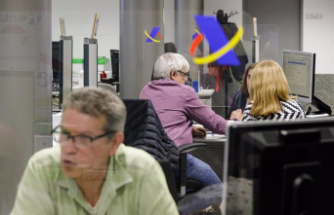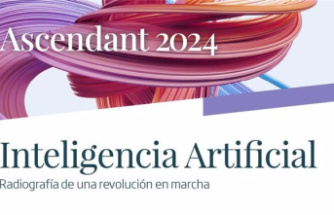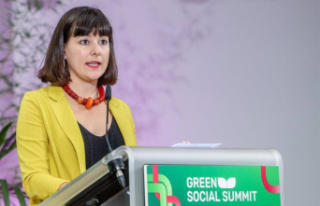MADRID, 14 Ene. (EUROPA PRESS) -
The Ministry of Labor and Social Economy plans to sign next week with the unions the agreement that both parties have reached to raise the minimum interprofessional wage (SMI) by 5%, to 1,134 euros per month for fourteen payments, with retroactive effects from on January 1, 2024, as Negotiation sources informed Europa Press.
Also next week, negotiations will begin between the Ministry, CCOO, UGT, CEOE and Cepyme to address the unemployment benefit reform after the rejection of the Plenary Session of Congress, with the votes of Podemos, PP and Vox, to the reform that designed by the Government without the assistance of social agents.
The second vice president and Minister of Labor, Yolanda Díaz, already anticipated that, when the increase in the SMI was closed, unions and employers would be immediately called to begin negotiating this reform, one of the milestones contemplated in the Recovery Plan and whose Approval is linked to the receipt of the fourth disbursement of European funds.
After the non-validation of the unemployment benefit reform in Congress, the minister recalled that this reform is "the only one" that the Government could not submit to social dialogue, since it had to be approved before December 31 so that Spain could request the fourth payment of the European anti-crisis fund, which will allow the receipt of another 10,000 million euros.
"Now yes, we will open the social dialogue table and this reform will be agreed upon with the social agents," said Díaz, who accused Podemos of having "beaten" the workers "hand in hand with PP and Vox" by voting in against the validation of a reform that expanded the coverage and amounts of the subsidy.
This reform was designed with the objective of coming into force on June 1, so its non-validation has not had an immediate effect on the unemployment assistance protection system.
But the decree where it was regulated also included other issues, such as the extension of the breastfeeding permit or the prevalence of regional agreements over sectoral and state ones that the PSOE had agreed with the PNV in exchange for its support for the investiture of Pedro Sánchez as President of the goverment. These two aspects had come into force and have now fallen with the non-validation of the standard.
The announcement that this subsidy reform was now going to be negotiated in the social dialogue was well received by unions and employers, who believe that it should have been done this way from the beginning.
Now, once the SMI agreement between the Government and the unions was closed last Friday, it is time to open the subsidy table, in which the Executive will maintain its objectives of expanding its coverage and its amount and in which the subsidy for those over 52 years of age, which was what motivated Podemos to reject the norm and its non-validation.
The reform that has remained in the pipeline increased the amount of the subsidy during the first year of receipt, made it compatible with employment during the first 180 days without loss of benefit and was linked to the signing of an activity agreement by its beneficiaries.
Specifically, the reform raised the unemployment benefit, currently from 480 euros per month, the equivalent of 80% of the Iprem, to 570 euros during the first six months of receipt (95% of the Iprem) and to 540 euros per month in the following six months. (90% of the Iprem) and then recover 80% of the Iprem until its termination, which remains at a maximum of 30 months, depending on age, family circumstances and the duration of the exhausted benefit.
Regarding the subsidy for those over 52 years of age, its amount remained at 80% of the Iprem, but Social Security contributions for the retirement contingency during the receipt of the pension are gradually reduced from the current 125%. same. Thus, in 2024 the contribution base would be equivalent to 120% of the minimum base of the General Regime in force at any given time; in 2025 it will be equivalent to 115%; in 2026 to 110%, and in 2027, to 105%.
The decaying reform also included in the subsidy those under 45 years of age without family responsibilities (about 150,000, according to Labor estimates) and possible agrarians residing outside Andalusia and Extremadura (about 250,000), as well as cross-border workers from Ceuta and Melilla.
In addition to the signing of the SMI agreement and the opening of the table for the reform of the unemployment benefit, the Government, in this case the Ministry of Inclusion, Social Security and Migration, has called for this week, specifically for Monday, a meeting of the pension social dialogue table.
This is a meeting of the technical table announced by the minister of the sector, Elma Saiz, after the meeting she held in mid-December, shortly after taking office, with the general secretaries of CCOO and UGT, Unai Sordo and Pepe Álvarez , and the presidents of CEOE and Cepyme, Antonio Garamendi and Gerardo Cuerva.
Regarding Social Security and pensions, in that meeting of the minister with union and business leaders, among other topics, the implementation of contributions and protection of training practices was addressed; the review of the procedure for the coefficients reducing the retirement age in arduous or dangerous activities, as well as the development of the agreements of the pact of agreements in relation to Temporary Disability.
The minister also committed to continue advancing in the equalization of rights in the field of Social Security in the group of domestic workers so that from 2024 they have the same treatment in their contribution gaps as the rest of the workers.













